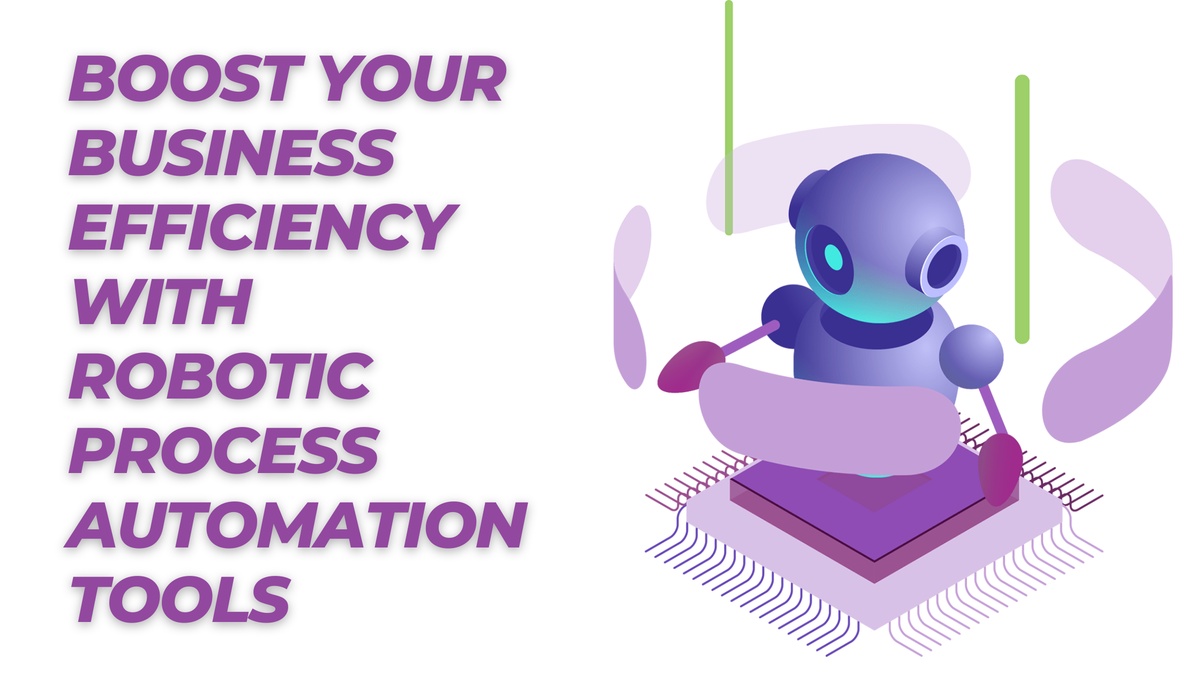In today's highly competitive business landscape, organizations are constantly seeking ways to improve efficiency, reduce costs, and streamline operations. One powerful solution that has emerged in recent years is Robotic Process Automation (RPA) tools. These innovative tools leverage automation technology to handle repetitive and rule-based tasks, freeing up valuable human resources to focus on higher-value activities. In this article, we will explore the benefits of leveraging RPA tools to boost business efficiency and drive operational excellence.
Understanding Robotic Process Automation (RPA)
Robotic Process Automation (RPA) is the use of software robots or "bots" to automate repetitive and rule-based tasks. These bots mimic human interactions with digital systems, allowing them to perform tasks such as data entry, data validation, invoice processing, and more. RPA technology has gained popularity due to its ability to enhance efficiency, accuracy, and productivity across various industries.
How RPA Tools Boost Business Efficiency
- Automating Repetitive Tasks: RPA tools excel at automating mundane and repetitive tasks that would otherwise consume a significant amount of human effort and time. By automating tasks like data entry and invoice processing, businesses can eliminate errors, reduce processing time, and improve overall efficiency.
- Improving Accuracy and Speed: Unlike humans, RPA bots are not susceptible to fatigue or distractions, enabling them to perform tasks with high accuracy and speed. By automating processes, businesses can minimize errors, ensure data consistency, and accelerate task completion time, leading to improved operational efficiency.
- Enabling Scalability and Flexibility: RPA tools offer scalability and flexibility, allowing businesses to adapt to changing demands and scale operations without the need for additional resources. As workloads fluctuate, RPA bots can be easily deployed or scaled-down, ensuring efficient resource allocation and optimal productivity.
- Enhancing Customer Experience: RPA tools can play a crucial role in improving customer experience by automating customer-centric processes. From customer onboarding and account maintenance to handling inquiries and providing personalized interactions, RPA can help businesses deliver faster response times, improved accuracy, and enhanced customer satisfaction.
Choosing the Right RPA Tool for Your Business
When selecting an RPA tool for your business, it's essential to consider several factors:
- Ease of use and user-friendly interface
- Scalability and compatibility with existing systems
- Integration capabilities with other business applications
- Security measures and compliance with data protection regulations
- Vendor reputation and customer support
Best Practices for Implementing RPA
To ensure successful implementation and maximize the benefits of RPA, consider the following best practices:
- Identify and prioritize processes suitable for automation
- Collaborate with stakeholders and IT teams to define automation objectives
- Conduct thorough testing and validation before full-scale deployment
- Monitor and continuously optimize automated processes for ongoing efficiency gains
Future Trends and Developments in RPA
The field of RPA continues to evolve rapidly, with several future trends and developments to watch out for:
- Cognitive automation: Integration of artificial intelligence and machine learning to enable bots to handle more complex tasks and make intelligent decisions.
- Intelligent process automation: Combining RPA with other technologies like natural language processing and computer vision to automate end-to-end processes.
- RPA as part of digital transformation: RPA is becoming an integral part of organizations' digital transformation initiatives, enabling greater operational agility and efficiency.
Conclusion
Robotic Process Automation tools have revolutionized the way businesses handle repetitive and rule-based tasks, offering significant benefits in terms of efficiency, accuracy, and productivity. By leveraging RPA, organizations can streamline operations, reduce costs, and enhance the overall customer experience. As technology continues to advance, the potential for RPA to transform business processes is only set to grow.


No comments yet